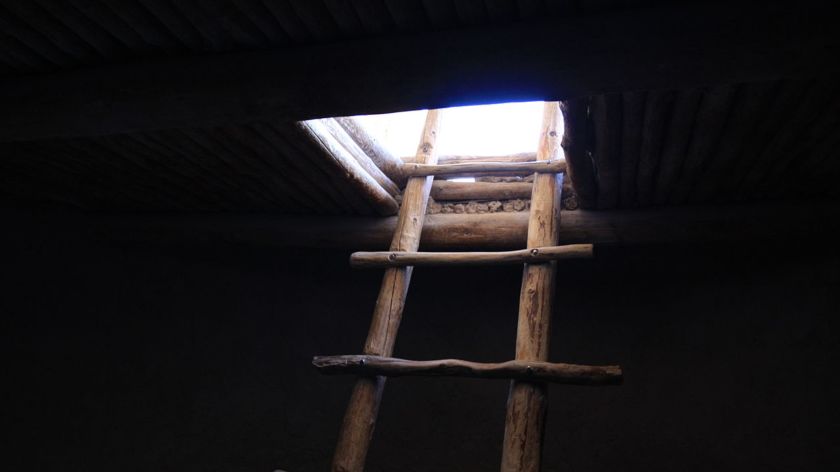Children of less educated parents have to work harder
-
 Foto: Wikimedia Commons
Foto: Wikimedia Commons
Highly educated parents know how to help their children with homework and are better able to push their offspring through pre-university education than less educated parents. As a result, in 2019 children from well-to-do families continue to enjoy better opportunities in education and on the labour market.
If you study at university, it is very likely that your parents also had an academic education. It’s still the case that children of highly educated well-to-do parents have better opportunities in the Netherlands. The Nijmegen sociologist Margriet van Hek conducts research on education and inequality. Her conclusion is that schools should do more to provide children with equal opportunities for the future.
The transition from primary to secondary school is a defining moment in the life of young adolescents. At this crossroads the decision is made whether they go on to preparatory secondary vocational education (VMBO/MAVO), senior general secondary education (HAVO) or pre-university education (VWO). According to Van Hek, research shows that this early differentiation creates inequality. ‘The longer pupils are kept together, the better you can combat inequality in education,’ she says.
In the Netherlands, children are usually twelve years old when they leave primary school. In Germany and Austria, the moment of choice comes even earlier, around age ten. In the US, children only know what they will do next once they complete secondary school.
‘Twelve is a relatively young age to split children into groups,’ she says. ‘The advantage of later differentiation is that stronger students lift weaker students to a higher level. By keeping them together longer, the students who perform less well can benefit from this. It’s true that the more able pupils are less challenged, but this doesn’t weigh up against the advantages for the rest.’
Shadow education
Overall, the Netherlands is a country where opportunities are largely determined by a person’s effort, perseverance and intelligence. But there’s also a link between children’s school performance and their parents’ level of education. According to The State of Education, the annual report of the Dutch Inspectorate of Education, children of highly educated parents are more likely to enrol in a HAVO or VWO track without delay, while children of less educated parents are more likely to repeat a year, or be referred to a special primary or VMBO track. According to the report, this can partially be explained by the child’s predisposition – his or her genes, basically.

But there are other explanations. Children from highly educated parents have access to resources that other children don’t have, first and foremost financially. Their parents are more likely to pay for tutoring, such as an additional course to improve their knowledge of certain subjects in preparation for the Centrale Eindtoets (Central Final Test), or shadow education (privately funded supplementary tutoring, Eds.) in secondary school.
Money is not the only factor. ‘In families with highly educated parents, the home culture doesn’t clash so much with the school culture,’ says Van Hek. ‘For example where knowledge is concerned. Highly educated parents are better able to help their children with essays, homework, and learning for exams, and they have a better understanding of how the education system works.’
Finally, the parents’ social contacts play a role. ‘Highly educated parents are more likely to find a good internship for their children. And if their children are struggling with maths, they usually know someone who can help out.’
Sifting
The State of Education research report also mentions teacher shortage as an important driver of inequality. This shortage is unequally distributed: schools with more pupils from ethnic minorities and disadvantaged social backgrounds have a much harder time finding teachers than other schools. One possible explanation is work pressure. Despite better conditions in schools with pupils who need more guidance – think smaller classes and more teachers per class – there is nevertheless higher absenteeism and staff turnover in these schools than in primary schools with more children of highly educated parents. Van Hek: ‘This sifting of teachers further exacerbates the differences between schools.’
‘Highly educated parents help their children get a good internship’
Teachers also affect children’s performance in another way. ‘Pupils whose teachers have high expectations of them tend to perform better. These expectations are largely based on the socio-economic status of the parents.’
The same textbooks
Inequality within Dutch society also impacts Dutch education. Since neighbourhoods tend to be fairly segregated and parents often send their children to the nearest primary school, children from more or less well-to-do families often end up in separate schools.
However, inequality also seems to be growing in secondary schools. ‘We used to have more broad school communities in the Netherlands,’ says Van Hek. ‘I went to a school where MAVO, HAVO and VWO all coexisted side by side. Now we have more separate VWO and VMBO schools, so VWO and VMBO pupils are less likely to meet during the course of their education.’
At the same time, the Dutch government does its best to minimise differences between schools. ‘In the Netherlands, education is quite standardised. To some extent, schools have to offer the same curriculum, and teacher salaries don’t vary much. In the US, there are much greater differences between secondary schools.’
Stacking
The fact that we don’t have American-style differences between schools doesn’t mean everything works perfectly. Over the last twenty years, inequality is also increasingly flagged as an issue in school recommendations. Take the Centrale Eindtoets (successor to the Cito-toets, Eds.): it was introduced in the 1960s based on the idea that all children should have equal opportunities and therefore be measured using a common yardstick. This idea no longer seems relevant, since nowadays teachers’ recommendations are just as important in school choice as the Centrale Eindtoets.
Apparently, teachers are more likely to recommend VWO for children of highly educated parents than for children of less educated parents. ‘This effect is growing, which is a problem,’ says Van Hek. ‘Why? Maybe because highly educated parents are more likely to put pressure on primary school teachers. They say: “You may recommend HAVO, but I want my child to do VWO.”‘
When children who were given a lower recommendation by their teachers nevertheless score well in the Centrale Eindtoets, the recommendation is sometimes adjusted accordingly. This happens in approximately one quarter of cases, but usually only after completion of the enrolment and placement period for secondary schools. As a result, students with an adjusted recommendation aren’t always able to find a place at the recommended level. This obstructs the development of pupils with less educated parents. Recommendations are much less likely to be adjusted downwards, another factor that plays out to the advantage of children of highly educated parents.
‘Pupils whose teachers have high expectations of them perform better’
All in all, the government can use education to combat social inequality in a number of ways, says Van Hek. She summarises her findings: ‘Keep children together as long as possible. Invest in keeping broad schools. Make stacking (stacking degree upon degree to achieve a higher education level, Eds.) easier. Study the impact of the timing of teachers’ recommendations vs the final test, and try to address potential negative effects. And standardise education as far as possible, to minimise differences between schools. We aren’t doing too badly in the Netherlands, but we could certainly do more.’
First-generation students
Traditionally, Radboud University is home to many first-generation students. These are students whose parents didn’t go to university. Over the last twenty years, they accounted for approximately 70% of the student population. Last academic year, they represented 64% of students.
In a popular VoxWeb article, Professor of Cultural History Jan Hein Furnée recently stated that the University should take account of the needs of these students, for example by making the introduction round in the first lectures at the start of the year low threshold and non-threatening. He believes some students may start to wonder in the first few weeks whether in view of their family background they are suitable university material.
Van Hek agrees: Lecturers should be aware of the large number of first-generation students at Radboud University, whose parents were not academically schooled. ‘It’s great that these students have made it to university, and we should try to keep them here. Lecturers usually come from well-to-do families themselves, and they’re not always aware of the effect their remarks have. Raising awareness is an important first step.’



